The Vulnerability Hangover
Vulnerability hangovers come as a whirlwind of second-guessing and emotional exhaustion after moments of raw honesty.
Her'e’s a text exchange with my husband. It was one of those moments that underscored the importance of a kick ass partner who gets you even when you don’t.
His response is a testament to how invaluable it is to have a partner who approaches your moments of openness with a 'yes, and' attitude rather than a disheartening 'wah wah wah.'
The hardest part (for me) in being a creative individual is having someone ask me about an idea, like “How are you? Still working on your play?”
My response—a candid spill of doubts, aspirations, and the nuanced intersection of my work with the self-help and healing sphere—lays bare the soul of my creative endeavor. 'Yes, but it’s been challenging. I'm exploring how my stage work could intersect with the self-help, healing world I'm passionate about, potentially blending them into one show. It's complex, so I’m planning a small living room performance to test the waters,' I explain, hopeful for a spark of understanding or curiosity.
Person/friend/acquaintance standing across from me: 'That’s great! How many boxes of Girl Scout Cookies did Rylie sell?
Commence vulnerability hangover.
Memoir work is a rollercoaster. One second, you're whooping with joy at the highs of creation, and the next, you're plunging into a pit of despair because, suddenly, your soul-baring masterpiece is destined for eyeballs.
The twist? While the creative process is an adrenaline rush, the real terror comes from FOPO—Fear of Other People's Opinions. Yep, thanks to Michael Gervais for coining that term; his book has been a real eye-opener.
It's a ride that flips you between exhilaration and the kind of fear that has you questioning if your breakfast might make a surprise reappearance.
The shame isn’t in the work.
I'm all in when I'm baring my soul under the spotlight—the applause, the monologues, the thrill of singing words that I penned. I love it all. I’d even go so far as to say I’m proud of it.
The plot thickens when my memoir turns into a ticketed event. It's like, one minute I'm pouring my heart out in a riveting solo act, and the next, I'm a product, complete with reviews and two-drink minimums. The age-old battle between the purity of art and the business of selling seats isn't new, but boy, does it feel personal.
The tension between art and commerce is not a new problem.
I don’t want to talk about how to FIX the culture to support artists.
I want to talk about how to fix MYSELF so that I can feel less shame about calling myself an artist.
Culture has this way of shaping a person,
molding them into a hardened shell of perfectionism on the outside and gooey fear on the inside.
Navigating the tightrope between art and commercial success is an age-old quandary, as relevant to the stage as it is to the canvas or the page. Yet, my quest isn't to redesign the cultural landscape that artists navigate—it's far more personal. I'm on a mission to redefine my internal dialogue, to wash away the shame that clings to the title of 'artist.
Martha Beck speaks of a 'social self,' the version of that meets the world's expectations. My favorite book of hers here.
My social self is on perpetual overdrive.
My social self tries to kill my artist self.
My social self ensures I look put together, avoiding both weight gain and excessive weight loss. It keeps me busy, making sure my kids participate in all the activities that seem to be the norm among their peers. It even pushes me to be the friend who agrees to dinner at 8 p.m., despite my preference for earlier meals. It pushes me to always think I need more money.
There's an endless list of roles our social selves play: tirelessly working to appear loyal, honest, attractive, strong, and lovable (insert yours here)—all while securing the perfect balloon arch for my (then) three-year-old's birthday.
Once, while undergoing a CT scan for pneumonia that had spread to my lung lining, I could barely stand—essentially on the brink of demise. Yet, there I was, phoning my mom to ensure she could grab a balloon arch for my daughter's birthday party, before spending the next six days in the hospital.
So…yeah. That’s culture.
My social self thrives on avoidance, control, overachievement, imitation, and lingering in stale friendships, all in the bid to blend into societal norms without drawing too much attention.
Conversely, my essential self dives into engaging conversations, creates plays about her life, cherishes playfulness, pursues meaningful connections, and openly seeks a life rich in spiritual creativity—a concept that unnerves me, given my social self's instinct to scoff at such vulnerability.
I do my best to make creative decisions in the morning, a time untouched by the day's cultural demands. I leverage the stillness before the world wakes up. With a cup of caffeine in hand, I ride the wave of energy to plan my next show or touch base with my photographer—setting dates solidifies my commitment and fuels my drive.
A date on the calendar is a huge motivation.
I send texts like this to my husband, with the knowledge that he is my cheerleader. It helps that he doesn’t bullshit me. When you have a brain like mine, I spin easily out of control. He is usually able to spot it and talk me down from the ledge.
He treats me like an artist, even if I don’t.
The journey of self-acceptance and artistic expression is not a solitary one.
It's a shared path, illuminated by those who believe in us—reminding us of who we are, even when we forget to see it ourselves.

